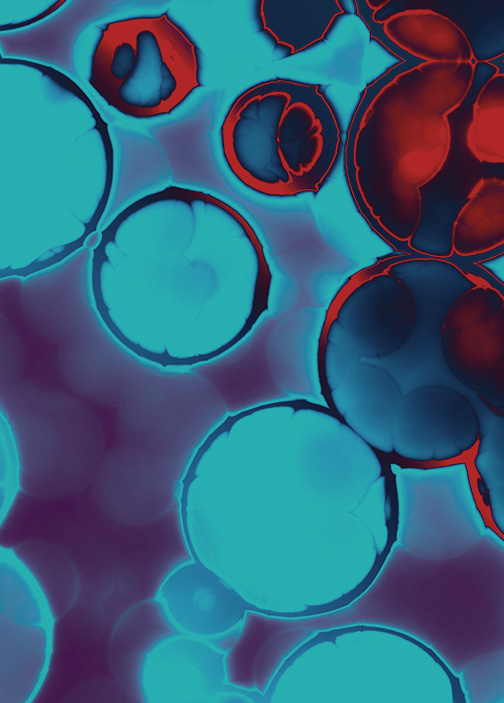
Ras is the archetypal member in a superfamily of proteins that regulate various cell signaling pathways, notably cell proliferation. KRas is the most frequently mutated RAS isoform, and is found in almost all pancreatic tumors, about 40% of colorectal tumors and about 30% of lung adenocarcinomas[3]. The once-considered “undruggable” Ras continues to be an attractive target for anticancer therapy, although no drugs have yet received FDA approval. We believe targeted protein degradation via AUTOTACs can selectively degrade KRas and serve as a cure for pancreatic cancer.
p53, a master regulator of genome stability, is the prototypical tumor suppressor protein in all forms of cancer. Mutations to p53 (e.g., R175H, R248W, R248Q, R273H, R337H) are doubly critical since the resulting mutants, which accumulate as amyloidogenic aggregates, not only lose their tumor-suppressive capabilities but also become oncogenic[4]. AUTOTACs can selectively target these mutant p53 aggregates for autophagic degradation, which we believe can be used to cure a wide spectrum of cancers.
[3] Liu et al. Targeting the untargetable KRAS in cancer therapy.
Acta Pharm. Sin. B.
[4] Francesco Perri et al. P53 mutations and cancer: a tight linkage. Ann Transl Med.
Sources : Application of non-invasive low-intensity pulsed electric field with thermal cycling-hyperthermia for synergistically enhanced anticancer effect of chlorogenic acid on PANC-1 cells. PLOS ONE.